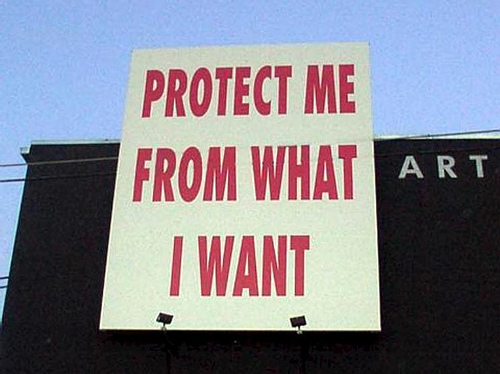“I raised pre with TT and this other guy in the big blind called. The flop comes AT2 with two hearts. The guy bets out about 2/3 the size of the pot, but because there was a flush draw I raised to protect my hand”.
No, no, no. Stop it.
“Protecting my hand” is an inaccurate phrase that is frequently used by beginner players in poker forums.
The actual play of raising your opponent’s bet is fine (it’s very good in fact), but the logic of “protecting your hand” is wrong. When you are making this raise you are not doing so to prevent your opponent from punching your pocket pair right between the eyes by drawing out on you – you are raising for value.
Raising and betting for value is where we bet or raise (of course) when we have good equity in the hand. If we have say, 70% equity in the hand, for every $1 that is put in to the pot we expect to win 70c of it over the long run. So as you can guess, the more money we can get in to the middle at this point the better.
Funnily enough, we actually want our opponent to call a large raise from us. Providing our raise is big enough in relation to the size of the pot, our opponent is going to be getting poor odds to continue with a flush draw. If they call, we gain over the long run from their mistake (fundamental theorem anyone?).
So, “protecting your hand” is counter-intuitive and the wrong way to think about why you are betting and raising in certain situations. When you have a strong hand and you bet or raise, you are doing so to get more value from your hand through your opponent’s calls with bad odds and worse hands.
Don’t get me wrong, you definitely want to be betting in situations like these to give your opponent bad odds to call. I’m not trying to argue whether or not betting with the best hand is correct or incorrect. I just want to make sure that you are aware of the correct reasoning behind your bets.
If you really want to “protect” your poor old hand, why not shove it all in, pick up the smaller pot and get the hell out of Dodge? Sure, you could do that, but then the reason we don’t do this is because we know deep down that it isn’t the optimum play. Our opponent is less likely to call with their draw, and so they can make the easy (and correct) decision to fold. We gain nothing from our ridiculous shove.
Every time you make a bet or raise in Texas Hold’em poker, get used to thinking of your action as either one of the following:
• A bet for value.
• A bluff.
You’re either betting and raising in the hope that your opponent will call, or betting and raising in the hope that your opponent will fold. Notice how there is no option for “betting and raising in the hope that your opponent will fold because we’re afraid that they will put their money in the middle with the worst hand”.
Remember that you are not playing poker in the constant fear of getting outdrawn by worse hands than yours. You are playing the odds and hoping that your opponents make mistakes. If you do that, you will win money. Always play with confidence rather than fear
—-
This article was written by Greg Walker of ThePokerBank.com. A site for Texas Hold em information and other fun stuff like that.
Photocred to jennzebel

Nice post, The example above with a set of 10s on a board that has a flush board , i’ll raise because im protecting my hand , im no longer going to think this way. Instead i’ll be thinking im raising here for value and If villian calls then hey , he will be making the mistake, and we want him to make these mistakes, because in the long run we will be winning.
Good post. It always bugs me when I hear people talking about “protecting their hand”. And when players in my home game get outdrawn on the turn or river I often hear them say “I should have shoved on the flop to push out the draws” (many times with hands like top pair, good kicker)…wrong. They played the hand fine, but they got outdrawn, that’s poker. Shoving a deep stack with one pair accomplishes nothing except turning your hand into a bluff. Now all the draws and worse hands fold for sure (and you win nothing more), but you lose your whole stack to someone with 2-pair or a set.
@Poker Meister, I can see why people do it but mathematically it’s incorrect. Playing from a position of fear whether it be fear of a bad beat or fear of putting a lot of money on the line will certainly have a negative impact on your results.
Good post, Bill. I make the mistake of “protecting my hand,” yet I really mean raising / betting for value. Though, after being sucked out on the river (whether it be a flush or straight, usually) against my set, I do indeed wonder why I didn’t “shove it all in, pick up the smaller pot and get the hell out of Dodge.” 🙂
-Poker Meister